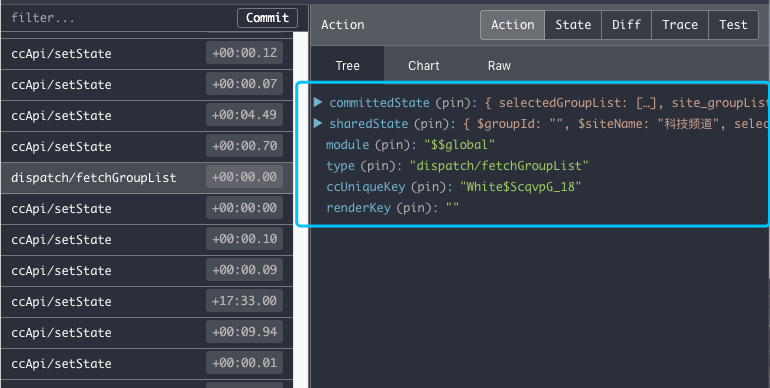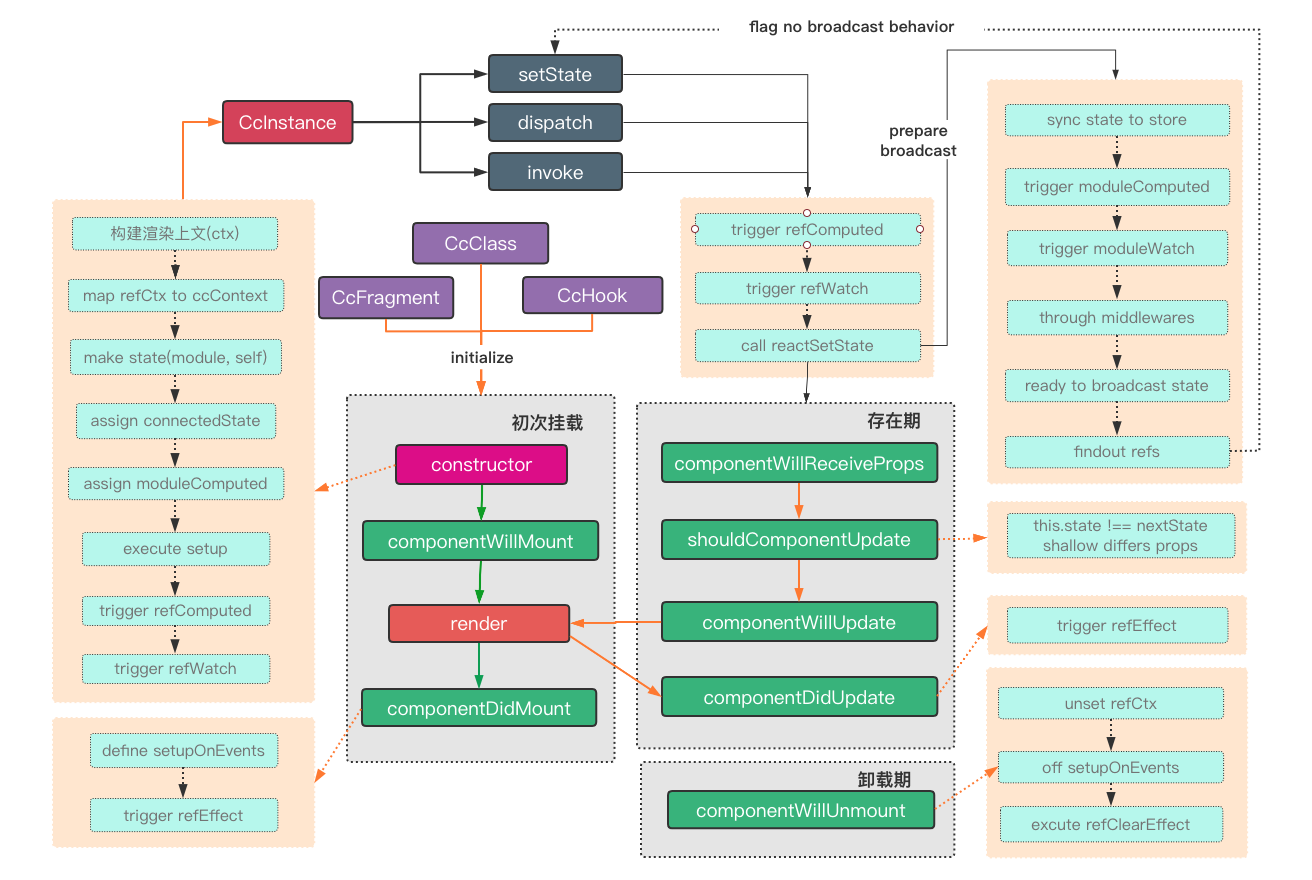English | 简体中文
⚡️ State management that tailored for react, it is simple, predictable, progressive and efficient.
Concent is an amazing state management tool, supported by a healthy middleware ecosystem and excellent devtools. It is a predictable, zero-invasive, progressive, high-performance react development framework!
Concent encourages simplicity. It saves you the hassle of creating boilerplate code and gives powerful tools with a moderate learning curve, suitable for both experienced and inexperienced developers alike.
- Render context injected automatically (no any annoying boilerplate code)
- Dependency collection at runtime (state & computed)
- Unified logic reuse of class and function components
- Optional Compostion api support
- Optional modular development support(state、reducer、computed、watch、lifecycle)
- High performance renderKey mechanism
- Centralization and De-centralization module configuration both support
- Dynamic module configuration support
- Reducer combination support
- React Devtools support
- Hot-reload support
- SSR&Nextjs support
- React-native support
- Dep collection of state
- Dep collection of computed
- Combine reducers
- Composition api
- Ref lifecycle method
- Flexible top api
- A standard js project with concent-eco lib
- A standard ts project with concent-eco lib
- Todo-mvc-concent vs Todo-mvc-redux
- Calculator-concent vs Calculator-hook
- Concent query list & Concent Shared query list vs Hook query list
- Concent-nextjs-ssr
visit official website https://concentjs.github.io/concent-doc to learn more.
Make sure you have installed nodejs。
$ npm i --save concentor yarn command
$ yarn add concentimport { run, register, useConcent } from 'concent';
run({
counter: {// declare a moudle named 'counter'
state: { num: 1, numBig: 100 }, // define state
},
// you can also put another module here.
});
@register('counter')
class DemoCls extends React.Component{
// commit state to store and broadcast to other refs which also belong to counter module
inc = ()=> this.setState({num: this.state.num + 1})
render(){
// here if read num, it means current ins render dep keys is ['num']
return <button onClick={this.inc}>{this.state.num}</button>
}
}
function DemoFn(){
const { state, setState } = useConcent('counter');
const inc = ()=> setState({num: state.num + 1});
return <button onClick={inc}>{state.num}</button>
}
export default function App(){
return (
<div>
<ClsComp />
<FnComp />
</div>
);
}Move logic to
reducerand definecomputed,watch,lifecycle
try edit this demo、 👉better js demo、👉better ts demo
import { run, register, useConcent, defWatch } from 'concent';
run({
counter: {
state: { num: 1, numBig: 100 },
computed: {
numx2: ({ num }) => num * 2, // only num changed will trigger this fn
numx2plusBig: ({ numBig }, o, f) => f.cuVal.numx2 + numBig // reuse computed reslult
},
reducer: {
initState: () => ({ num: 8, numBig: 800 }),
add: (payload, moduleState, actionCtx) => ({ num: moduleState.num + 1 }),
addBig: (p, m, ac) => ({ numBig: m.numBig + 100 }),
asyncAdd: async (p, m, ac) => {
await delay(1000);
return { num: m.num + 1 };
},
addSmallAndBig: async (p, m, ac) => {
// hate string literal? see https://codesandbox.io/s/combine-reducers-better-7u3t9
await ac.dispatch("add");
await ac.dispatch("addBig");
}
},
watch: {
numChange: defWatch(({ num }, o) => console.log(`from ${o.num} to ${num}`), {immediate:true})
},
lifecycle: {
// loaded: (dispatch) => dispatch("initState"), // triggered when module loaded
mounted: (dispatch) => dispatch("initState"), // triggered when the first ins of counter module mounted
willUnmount: (dispatch) => dispatch("initState") // triggered when the last ins of counter module unmount
}
}
});
@register("counter")
class DemoCls extends React.Component {
render() {
// mr is short of moduleReducer, now you can call counter module's all reducer fns by mr
return <button onClick={this.ctx.mr.add}>{this.state.num}</button>;
}
}
function DemoFn() {
const { moduleComputed, mr } = useConcent("counter");
return <button onClick={mr.add}>numx2plusBig: {moduleComputed.numx2plusBig}</button>;
}With middleware and plugin mechanism, you can easily cutomize your common handler for non logic code, or migrate redux eco lib.
Details see here react-router-concent,expose history,you can call it anywhere in your app to enjoy the imperative navigation jump.
react-router-concent online demo
Details see here concent-plugin-redux-devtool,track your state changing history。

Details see here concent-plugin-loading,control all your reducer function's loading status easily。
concent-plugin-loading online demo
concent is released under the MIT License. http://www.opensource.org/licenses/mit-license


